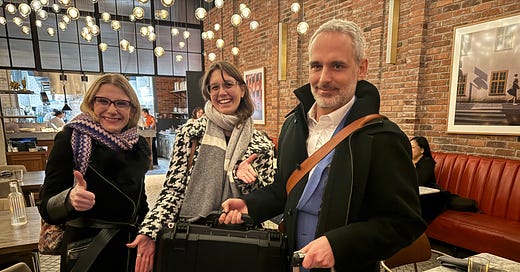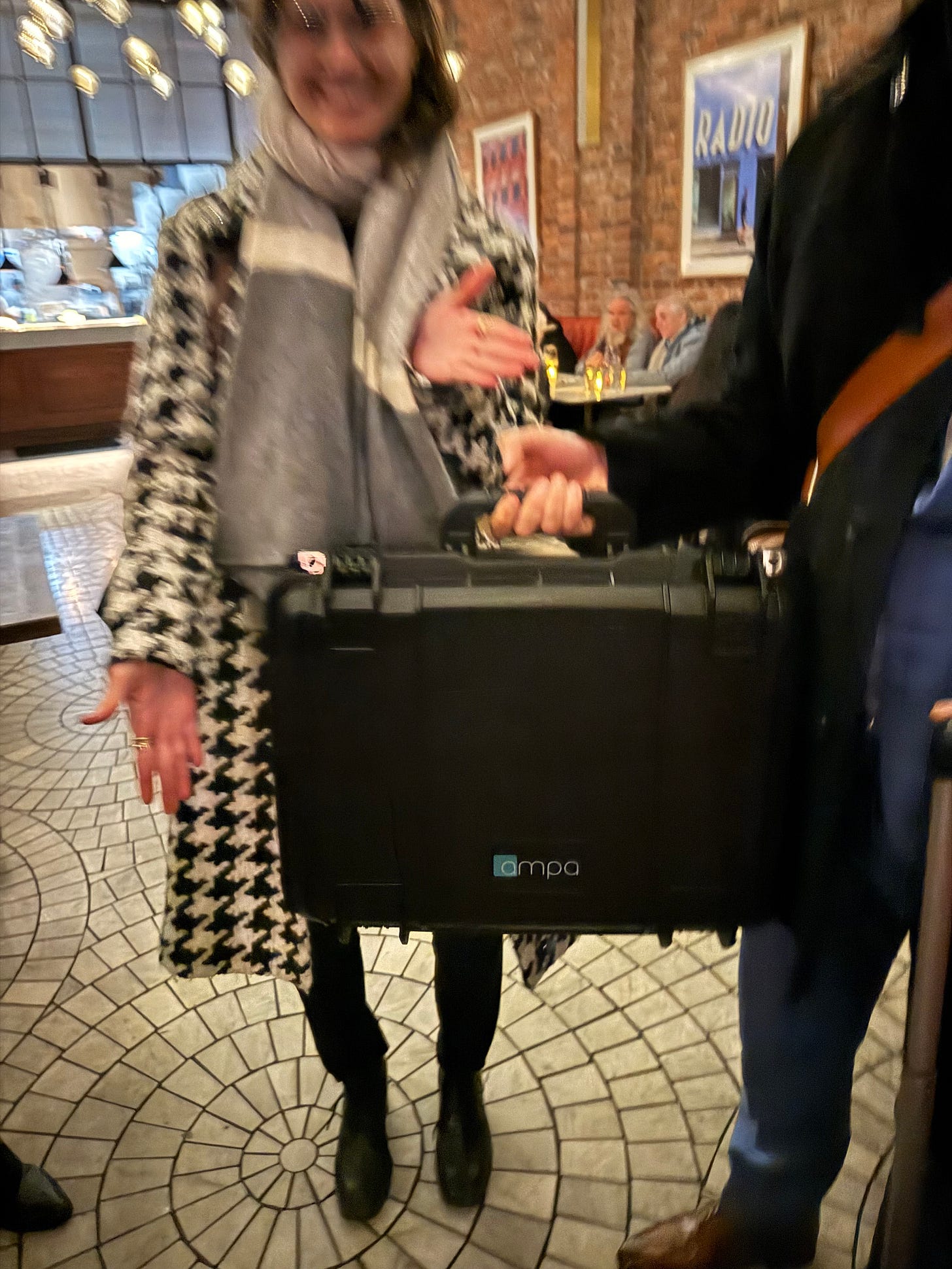Depression Can Be Over With A One Day Treatment 90% of The Time*
*the ONE-D trial blows up everything you thought you knew about Depression treatment, In a good way.
Every once in a while, I get to know something is coming. And I can't say anything about it. I have to wait, and like my children on Christmas morning, who woke up at 2 AM, and were frustrated they couldn't open any presents until the actual morning, I am restless and frustrated because my readers are going to want to know! I value your close attention, dear readers, and today, I bring the kind of data that does not disappoint.
Now, today, I break news that may knock those holiday socks right off. We have a new clinical trial, with a pre-print, that I'm now allowed to tell you about. I’m not kidding—you are going to need new emergency replacement socks.
Announcing:
Real-world effectiveness of a single-day regimen for transcranial magnetic stimulation using Optimized, Neuroplastogen-Enhanced techniques in Depression (ONE-D)
Not only does the entire treatment take place over one day, but the remission rate is the best I've ever seen in a clinical trial for this disorder—90%+
Let's dig in!
Jonathan Downar, M.D. is a leader in the field of brain stimulation, and as a Canadian, minces no words in his introduction related to the problems with once-daily TMS treatment:
Conventional transcranial magnetic stimulation (TMS) regimens are logistically burdensome, requiring days or weeks of clinic visits. Here, we describe a TMS regimen enabling the delivery of an entire therapeutic course in a single day.
Once a day for weeks on end sucks for regular people, particularly people who live in far-flung parts of the planet. If we all lived in academic medical centers, that would be a different kind of problem, but some of us live in godforsaken parts of the world like…Queens. I’m kidding! I love Queens. Really, there is so much to do there.
How do we get an entire, historically once-daily over 6-week course of brain stimulation done in the course of one day? Science, that is how. And Dr. Downar built a company with colleagues at Ampa, to address the problem. In this publication, they demonstrate what happens when they combine two drugs that are old with a very easy to deploy TMS approach. These two drugs, dextroamphetamine and d-cycloserine, together promote the ability of the brain to change. We called this plasticity. They are plasticity promoting agents. This means when we stimulate the brain in a way that could cause change, more change happens.
So much change, in fact, then when we do 20 depression treatments in one day, each only three minutes in duration, separated by about 30 minutes, 90% of people don't have depression anymore—when we follow them out for six weeks.
That's right, one nine and a half hour day, using the stimulator that is so small it just weighs 300g, and …wait. More often than any other depression treatment I've ever seen, that depression will no longer be a problem for that person for some period of time. We don't yet know how long depression will stay at bay using this approach, because it's brand new.
There are more details, obviously, but the headline? We have the most rapidly the deployable depression treatment, yet.
There is no control group in this clinical trial. That was not the point of this clinical trial. The point was to prove that a one day treatment was possibly effective. We have a prior paper that demonstrated a 0.99 effect size by augmenting once daily intermittent theta burst stimulation with the d-cycloserine alone, so it was a logical next question to see what would happen if we did all the stimulation in one day.
This also doesn't solve every problem at once. As you can see, there's a delayed response to this one day loading dose of brain stimulation augmented with these plasticity promoting agents. It takes much more time for depression to remit with this treatment than it does with something like Magnus Medical SAINT neuromodulation, HOPE-TMS, or the accelerated stimulation with H-coil system that I've been using for years. 60% of individuals who get 5-day accelerated treatment like SAINT remit on day five. Thus, for patients with acute suicidality, that approach may still prove superior.
There is more work yet to be done, but I'm thrilled to be a clinical trial site for the next phase of the work Ampa is doing at both Fermata and Acacia clinics. Yes, we are clinical trial site for this work subsequently.
By the way, you know that picture you saw above? Where people were just hanging out casually holding a suitcase? I'm gonna show you that one more time, and then I'm gonna tell you, the stimulator used for this trial fits in that box. Yes, it's that portable.
The future is so close, and in it, people are suffering less pretty quickly.







When? Where? And how much?!
Fascinating. Any idea why the trial used 600 pulse sessions rather than 1200 or 1800 pulse sessions?